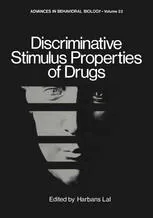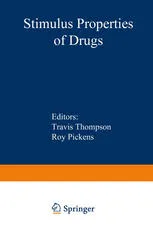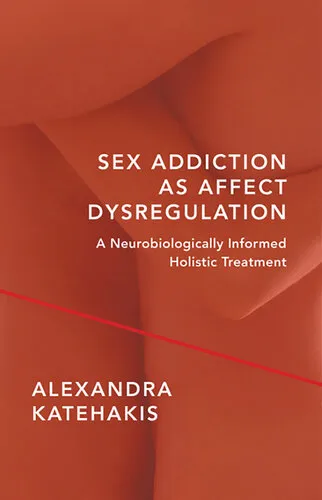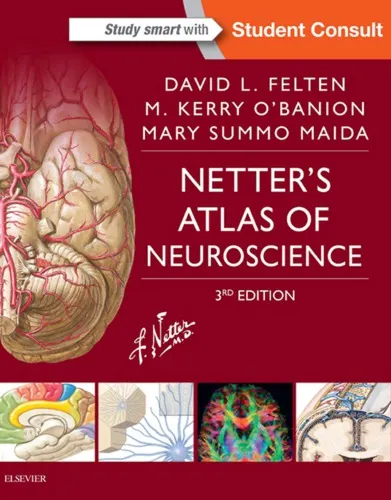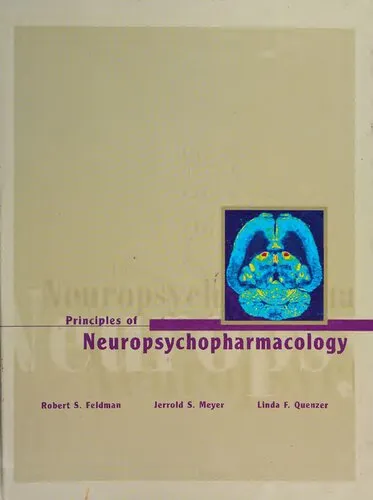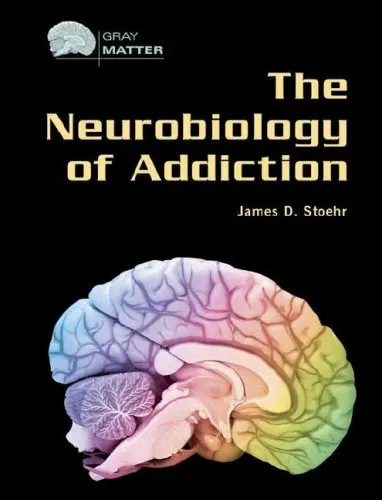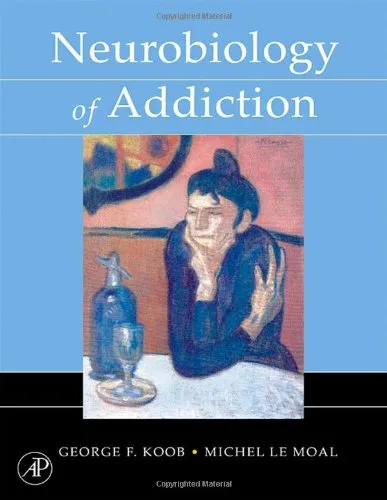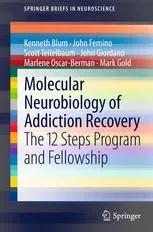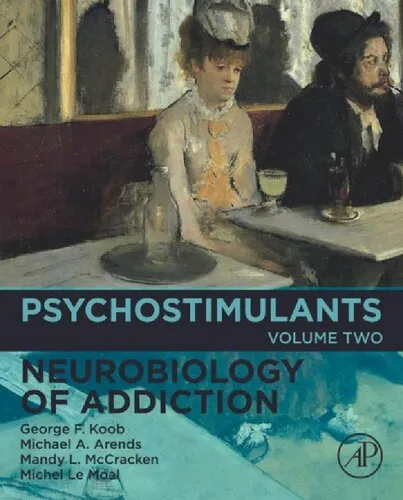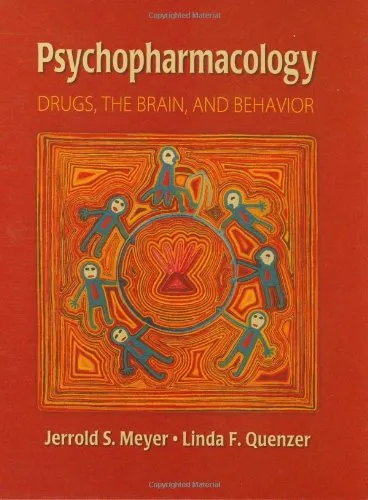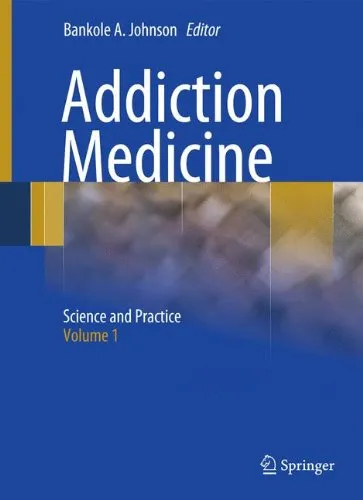Behavioral Neurobiology of Alcohol Addiction
4.5
بر اساس نظر کاربران

شما میتونید سوالاتتون در باره کتاب رو از هوش مصنوعیش بعد از ورود بپرسید
هر دانلود یا پرسش از هوش مصنوعی 2 امتیاز لازم دارد، برای بدست آوردن امتیاز رایگان، به صفحه ی راهنمای امتیازات سر بزنید و یک سری کار ارزشمند انجام بدینکتاب های مرتبط:
معرفی جامع کتاب "Behavioral Neurobiology of Alcohol Addiction"
کتاب "Behavioral Neurobiology of Alcohol Addiction" یکی از برجستهترین آثار علمی در حوزه عصبشناسی رفتاری و اعتیاد به الکل است که توسط George F. Koob به نگارش درآمده و توسط Wolfgang H. Sommer و Rainer Spanagel ویرایش شده است. این اثر علمی با بررسی دقیق مکانیسمهای عصبشناختی، رفتاری و زیستشناختی مرتبط با اعتیاد به الکل، تلاش میکند دانش ما درباره این اختلال پیچیده را گسترش دهد. در ادامه، این کتاب بهطور جامع معرفی شده و نکات کلیدی، خلاصه و اهمیت آن بررسی میشود.
خلاصهای جامع از کتاب
کتاب از چهارچوبهایی پیشرفته برای بررسی تاثیر الکل بر مغز انسان و رفتار استفاده میکند. این اثر علمی روشهای نوینی برای درک فرآیندهای زیستی و رفتاری مرتبط با مصرف الکل ارائه میدهد. بخشهای مختلف کتاب مکانیسمهای نوروبیولوژیکی وابستگی به الکل، شامل نقش سیستمهای پاداش (Reward Systems)، فرآیندهای استرسی، و چگونگی تاثیر مصرف طولانیمدت الکل بر تغییرات عصبی-پلاستیکی (Neuroplasticity) را مورد بحث قرار میدهند. تحلیل عمیق این کتاب نشان میدهد که اعتیاد به الکل صرفاً بهعنوان امری روانی در نظر گرفته نمیشود، بلکه اختلالی پیچیده است که شامل تغییرات بنیادی در سطح مولکولی و سلولی مغز انسان میگردد.
کتاب همچنین بر این نکته تأکید دارد که درمان موفقیتآمیز اعتیاد به الکل نیازمند درک عمیق از زیربناهای عصبی و رفتاری مربوط به آن است. افزون بر این، چالشهای تحقیقاتی در زمینه یافتن درمانهای بهتر برای این معضل اجتماعی نیز مورد بررسی قرار گرفته است.
نکات کلیدی از کتاب
- بررسی سیستمهای مغزی مختلف مانند سیستم پاداش و سیستم استرس، که بهطور مستقیم در ارتباط با اعتیاد به الکل هستند.
- نقش فرآیندهای مولکولی نظیر تغییرات اپیژنتیک (Epigenetics) در واکنشهای عصبی به مصرف الکل.
- جایگاه فاکتورهای محیطی و ژنتیکی در ابتلا و پیشرفت اعتیاد به الکل.
- معرفی مدلهای بالینی و پیشبالینی جدید برای مطالعه اعتیاد به الکل.
- بحثی تخصصی درباره اختلالات همزمان روانی نظیر اضطراب و افسردگی که با اعتیاد به الکل مرتبط هستند.
جملات برجسته از کتاب
"Understanding addiction involves decoding the complex interplay between brain systems, behavioral patterns, and environmental influences."
"Addiction is not a failure of willpower but a profound disruption in brain chemistry."
چرا این کتاب اهمیت دارد؟
این کتاب به دلیل سطح بالای علمی و تمرکز بر نوروبیولوژی اعتیاد به الکل، در دنیای تحقیقاتی اهمیت ویژهای دارد. نویسندگان با استفاده از دادههای تجربی و شواهد بالینی، دیدگاهی چندبعدی ارائه میدهند که میتواند به توسعه درمانهای مؤثرتر برای این بیماری کمک کند. آنچه این کتاب را برجسته میسازد، تعامل بین علوم پایه و کاربردی است که در آن محققان و پزشکان هر دو میتوانند از محتوای آن بهرهمند شوند. همچنین این اثر برای جوامع علمی، دانشجویان پزشکی، روانشناسان، و دیگر متخصصان فعال در حوزه اعتیاد، منبعی بسیار غنی و ارزشمند است.
Introduction to "Behavioral Neurobiology of Alcohol Addiction"
The book Behavioral Neurobiology of Alcohol Addiction, authored by George F. Koob and edited by Wolfgang H. Sommer and Rainer Spanagel, offers an in-depth exploration of one of society's most complex and detrimental challenges: alcohol addiction. Combining state-of-the-art research, compelling scientific analysis, and a multidisciplinary perspective, this book sheds light on the neurobiological underpinnings of alcohol addiction, fostering a deeper understanding of its behavioral and physiological dimensions. Rich in detail and expert insights, it has become an essential resource for researchers, clinicians, and students alike.
Detailed Summary of the Book
The book provides a comprehensive overview of alcohol addiction by dissecting it from multiple scientific angles, including biology, behavioral science, and neuroscience. It delves into how alcohol interacts with the central nervous system, the genetic and epigenetic factors contributing to addiction, and the psychological traits that increase vulnerability to alcohol dependency. The authors diligently cover the role of neurotransmitters, brain circuits, and molecular pathways, offering a fine-grained view of the mechanisms driving alcohol-related behaviors.
Organized intuitively, the book discusses the progression of alcohol addiction—from initial consumption, development of tolerance, loss of control, to dependence. A significant portion of the text focuses on neuroadaptations, including changes in brain plasticity, neurochemical signaling, and stress systems. Beyond biology, the book also covers challenges in treatment outcomes, relapse risks, and the societal impacts of alcohol addiction. Each chapter builds upon the core premise that an interdisciplinary approach is vital to addressing this pervasive public health issue.
Key Takeaways
- Alcohol addiction alters brain circuits responsible for reward, motivation, and stress regulation.
- Chronic alcohol use leads to neuroadaptations that perpetuate dependence and relapse risks.
- Genetic and environmental factors play a significant role in the likelihood of developing alcohol addiction.
- Effective treatment strategies must address not only the biological aspects of addiction but also the psychological and social dimensions.
- Research on the neurobiology of addiction provides valuable insights for developing new treatment approaches and interventions.
Famous Quotes from the Book
"What makes alcohol addiction so insidious is its dual character: as both a social construct and a neurobiological condition."
"Understanding the biology of addiction is crucial to dismantling the societal stigma associated with it."
Why This Book Matters
This book stands as a crucial resource in the modern fight against alcohol addiction. The unique fusion of behavioral analysis with cutting-edge neurobiological research provides an authoritative guide to understanding both the causes and consequences of alcohol dependency. Moreover, it bridges the gap between foundational science and clinical applications, paving the way for the development of novel therapeutic interventions aimed at mitigating the global burden of alcohol addiction.
By unraveling the complexities of addiction in an accessible yet scientifically rigorous manner, Behavioral Neurobiology of Alcohol Addiction raises awareness and fosters academic and public discourse. It equips professionals and students in the fields of neuroscience, psychology, psychiatry, and public health with deep insights into the multifaceted nature of addiction. At its heart, this book underscores the urgency of taking a holistic approach to understanding addiction, one that goes beyond the individual and into the societal and cultural contexts that shape it.
دانلود رایگان مستقیم
شما میتونید سوالاتتون در باره کتاب رو از هوش مصنوعیش بعد از ورود بپرسید
دسترسی به کتابها از طریق پلتفرمهای قانونی و کتابخانههای عمومی نه تنها از حقوق نویسندگان و ناشران حمایت میکند، بلکه به پایداری فرهنگ کتابخوانی نیز کمک میرساند. پیش از دانلود، لحظهای به بررسی این گزینهها فکر کنید.
این کتاب رو در پلتفرم های دیگه ببینید
WorldCat به شما کمک میکنه تا کتاب ها رو در کتابخانه های سراسر دنیا پیدا کنید
امتیازها، نظرات تخصصی و صحبت ها درباره کتاب را در Goodreads ببینید
کتابهای کمیاب یا دست دوم را در AbeBooks پیدا کنید و بخرید
1279
بازدید4.5
امتیاز0
نظر98%
رضایتنظرات:
4.5
بر اساس 0 نظر کاربران
Questions & Answers
Ask questions about this book or help others by answering
No questions yet. Be the first to ask!


